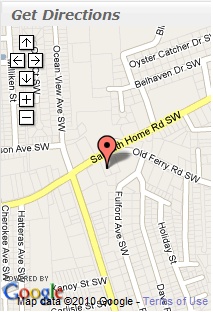Personal Injury FAQ
- How do I know if I have a personal injury claim?
- What kind of damages can I be compensated for due to my injuries?
- How long does it take to resolve a personal injury claim?
- What happens during a personal injury lawsuit?
- What do ‘pain and suffering’ damages cover?
- What is negligence?
- What is contributory negligence?
- What is premises liability?
- How is negligence determined?
- What are punitive damages?
- If I’m injured in a motor vehicle accident, or my vehicle is damaged, who pays for that?
- What type of claim would I be making if I’m involved in a motor vehicle accident?
- How do I know if I have a medical malpractice suit?
- If I slip and fall at a place of business, is the owner of the property responsible?
First, you must have suffered an injury, been traumatized or had property damage. The second is that the injury is due to the negligence of another person, company, or their property or pet. Contact Del Re Law Firm for further information on determining whether you have a personal injury claim.
Depending on your case, there are a number of things you may be compensated for.
The most common include:
- Medical expenses
- Lost wages
- Compensation for pain and suffering
- Property damage
- Loss, or reduction in, quality of life
- Emotional Trauma
This varies by case. Some claims are resolved within a matter of months, while other more complex cases, can take several years. Contact our law firm for a more specific estimate of time surrounding your potential claim.
The first step is to gather as much information as possible about the incident. This allows the law firm to gather all relevant facts, and determine how best to proceed with your case. A legal representative from the company or person you are filing the claim against will then be contacted by your law firm.
Typically, your participation in the process is very minimal. The majority of personal injury claims are settled without going to trial, and without any court testimony or appearances. Once the case is settled, the law firm will give you a check for any monetary compensation you’re awarded. Contact our firm for further information on the process.
Pain and suffering damages typically refer to any money awarded that is over and above your medical expenses and lost wages. These include things such as physical pain suffered, emotional trauma, and mental disability.
Negligence is defined as an incidence of failure, indifference or carelessness to use a reasonable amount of care, that results in damage or injury to another.
This where the defendant claims that the plaintiff’s (your) negligence contributed to their injuries. If they can prove this in NC, your claim will be denied.
Premises liability refers to an accident that occurs due to dangerous conditions or negligent upkeep on property that is owned by someone other than the accident victim.
Civil courts have a lower burden of proof than criminal courts. In a personal injury suit, the plaintiff is only required to prove that the injury was a result of the defendant’s negligent actions. In short, the evidence must show that the defendant must have broken the standard of care, had a reasonable, foreseeable knowledge that an act of injury would occur from their negligence, and caused injury to the victim. Contact our firm for more information on your specific case.
Punitive damages are compensation in excess of actual damages, such as injuries or medical care.
It really depends on who caused the accident. If you are at fault, your liability insurance will pay for the others driver’s property damage and personal injury, up to the limit of your policy. If you carry comprehensive coverage, this will cover your losses, up to the limit of your policy. If other driver is at fault, your property damages and personal injuries will be covered by their policy.
Motor vehicle claims are usually based around the careless and reckless negligence of one of the parties involved. For these types of suits, the main factors are who was at fault, the extent of damages that occurred, and what the insurance companies are willing to pay for the accident.
To prove medical malpractice, you must first have been given care that caused injury or death. But, a negative medical outcome is not enough. You must also have expert testimony that shows that the level of care received by the medical provider was not up to the correct standard of care. Contact our office to discuss your particular situation.
It depends. An owner of a property is required to maintain their premises, and provide a reasonable and safe environment. They are further required to notify visitors of any dangerous conditions. If you feel proper care has not been taken, and you were injured as a result, contact our firm and we can discuss your options.

